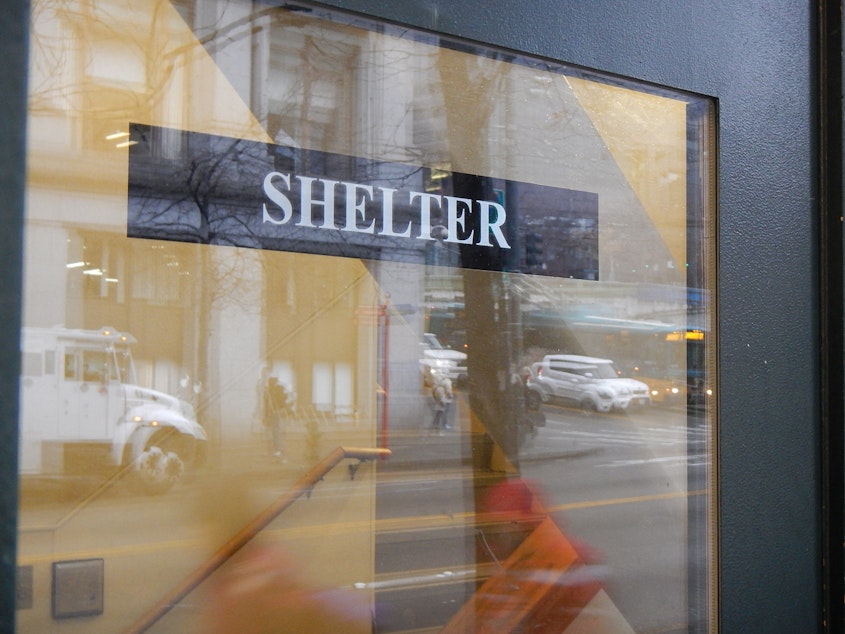Seattle could have even fewer shelter beds with head tax plan, Seattle mayor says

Seattle Mayor Jenny Durkan didn't veto the head tax passed by the Seattle City Council earlier this week, but in a letter to council members last night, she criticized the council's spending plan for the new tax.
Durkan said she predicts there could be fewer shelter beds than there are now — and far fewer permanent housing units than the council claims there would be.
Sent after Durkan signed the ordinance yesterday evening, the mayor took issue with how council members planned to spend the estimated $237.1 million in head tax revenue over five years.
According to the spending plan resolution passed by the council on Monday — subject to negotiation in the budget process this fall — the breakdown for the new tax revenues goes something like this:
- Building 591 new, subsidized mixed-income units for permanent housing, 302 of which will go to the most vulnerable homeless people. Still, in this spending plan, those 302 units will only come online in the third year of the tax, or 2021.
- Renting 289 units to immediately house the homeless — over five years.
- Creating 304 placements in different types of immediate shelter: 70 beds of basic shelter within the first two years, 180 beds of enhanced shelter over five years, and 54 spots in tiny house encampments in the first two years.
- 285 tons of garbage removal (over five years).
- 153 "safe parking spaces" — including services for people living in their cars.
- Continued funding of the navigation team, which both removes unauthorized encampments and offers services to those living in them.
Sponsored
Keep in mind these numbers are totals over five years, much of which won't be immediately available. With an estimated 8,500 homeless people scraping by in Seattle, 302 units of permanent housing that start to come online for the most vulnerable homeless three years from now doesn't begin to cover the need.
But according to Durkan, who will issue her own budget proposal later this year, the true numbers come up even shorter. Before the new tax revenues start rolling in, the city has already dedicated $6 million in one-time funding measures towards homelessness. If the city doesn't renew these funds, 184 permanent supportive housing units would disappear.
By Durkan's math, that means that of the 591 units of subsidized housing created over five years, 407 permanent units. Of the shelter beds, the loss of the beds outweighs the new ones, Durkan says. Seattle would be down 214 beds.
The City Council's proposed spending plan doesn't take into account this money already budgeted for permanent housing and shelter beds, Durkan said.
In her letter, Durkan assumes that the council won't renew the one-time spending measures outside of the head tax revenue, highlighting the bigger picture of the city's budget woes.
Sponsored
In late April, the city's Budget Office gave a presentation to the city council projecting $28.5 million and $53.5 million deficits in the city's general fund in 2019 and 2020 respectively. The major expenditures? One-time funding for homelessness in 2018, 2019, and beyond.
The looming projected deficits, which also reflect a slow-down in growth and construction, may help explain Durkan's letter. They may also help explain why in March, Durkan proposed cutting 2 to 5 percent of department budgets.

